In today’s fast-paced and unpredictable world, millennials highly value financial stability. One crucial aspect of financial security is having an emergency fund, a safety net for unexpected expenses. This essential financial tool not only provides a cushion in times of need but also instills a sense of confidence and control over one’s financial future.
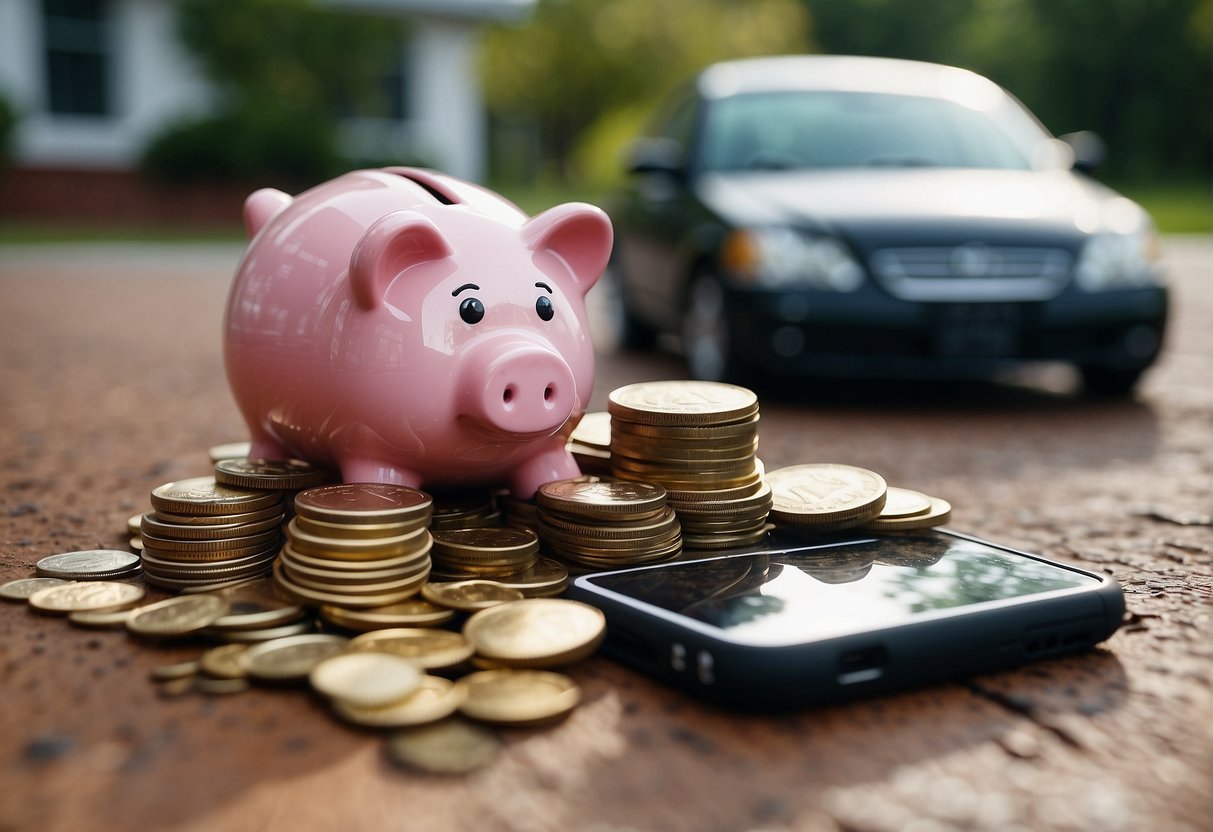
Emergency funds are essentially liquid savings that millennials can access quickly during financial distress, such as unexpected medical bills, job loss, or significant repairs. These funds are separate from regular savings and are specifically dedicated to covering unforeseen costs. Building an emergency fund is crucial for millennials because it helps them avoid falling into debt or withdrawing from long-term investments to cover sudden expenses.
Key Takeaways
- An emergency fund is essential for financial stability and peace of mind.
- Building an emergency fund helps millennials avoid debt and protect long-term investments.
- Maintaining a separate, liquid fund for unexpected expenses is crucial for financial security.
Understanding the Emergency Fund
Definition and Purpose of an Emergency Fund
An emergency fund is a crucial component of any financial plan that serves as a safety net for unexpected expenses or life events. Its primary purpose is to buffer against unforeseen circumstances that could otherwise derail an individual’s short- and long-term financial goals1.
Having an emergency fund is essential for millennials, as it ensures financial security and peace of mind during trying times. The money set aside in an emergency fund enables people to handle unexpected expenses, such as job loss, medical emergencies, or car repairs, without resorting to high-interest loans or credit cards.
The Role of Emergency Funds in Financial Planning
Incorporating an emergency fund into a financial plan allows individuals to confidently pursue their financial goals. Knowing that a buffer is in place to handle unexpected expenses can significantly reduce stress and help avoid impulsive financial decisions.
A well-established emergency fund should have:
- At least 3-6 months’ worth of living expenses
- Easy access to funds, e.g., through a savings account
While setting up an emergency fund, it’s advisable to prioritize contributions to this fund over other financial goals. Setting aside a portion of each paycheck or automating transfers from a checking account are effective ways to accumulate funds steadily.
In conclusion, establishing an emergency fund is an essential part of financial planning for millennials, providing security and stability in an unpredictable world. Achieving financial autonomy and long-term goals starts with a solid foundation built on risk management and strategic foresight.
The Impact of Unexpected Expenses
Common Types of Unexpected Expenses
Unexpected expenses can surface at any time and often catch millennials off guard. Some common types of unforeseen expenditures include:
- Medical bills: Sudden illness or accidents may require immediate medical attention, resulting in hefty medical expenses.
- Car repairs: Vehicle breakdowns and accidents can lead to costly major car fixes.
- Home-appliance repair or replacement: Household appliances may malfunction; repairing or replacing them can be expensive.
- Natural disasters: Events such as floods, earthquakes, tornadoes, and hurricanes may cause damage to property and possessions, which can be costly to repair or replace.
Managing Emergencies Without an Emergency Fund
When facing unexpected expenses without an emergency fund, millennials may resort to less-than-ideal financial solutions, which can create long-term problems:
- Credit card debt: In the absence of savings, millennials might rely on credit cards during emergencies, often leading to expensive debt.
- Loans from friends or family: Borrowing money from loved ones can strain relationships, mainly if the borrower cannot repay on time.
- Payday loans: High-interest payday loans can worsen an already precarious financial situation and create a cycle of debt.
To be prepared for unforeseen financial challenges, establishing an emergency fund is essential for every millennial. A well-funded emergency savings account can provide a safety net, preventing the need to rely on alternative means, which might lead to future financial setbacks.
Creating a Budget for Your Emergency Fund
Assessing Monthly Expenses
The first step in creating a budget for your emergency fund is to assess your monthly expenses. Start by reviewing all your living expenses, such as rent, utilities, groceries, and transportation. Please list all these costs, separating them into two categories: essential expenses (e.g., housing, food, utilities) and discretionary expenses (e.g., entertainment, dining out).
| Essential Expenses | Discretionary Expenses |
|---|---|
| Rent/Mortgage | Dining out |
| Utilities | Entertainment |
| Groceries | Shopping |
| Transportation | Hobbies |
Next, analyze your current spending habits by reviewing bank statements and credit card bills to identify where you can cut back and allocate more funds to your emergency fund. A detailed budget is the foundation for successful saving.
Setting a Savings Goal
Setting a realistic savings goal is essential to make saving for an emergency fund more attainable. Experts recommend having 3-6 months’ worth of living expenses saved in an emergency fund. Calculate the total amount needed by taking your monthly essential expenditures and multiplying them by the desired number of months.
For example, if your essential monthly expenses are $2,000 and you want to have a six-month emergency fund, your savings goal would be:
$2,000 x 6 = $12,000
Once you have determined your savings goal, it’s time to implement a plan to reach that target. Automate your savings by setting up automatic transfers from your checking account into a separate account designated for your emergency fund. Additionally, you can directly allocate windfalls, such as tax refunds or bonuses, into the fund to accelerate your progress toward your goal.
By closely monitoring your expenses and setting achievable savings goals, you can create a budget to establish a solid emergency fund. This financial safety net will provide much-needed peace of mind for millennials navigating the uncertainties of life.
Saving Strategies for Millennials
Automating Savings
One effective method for millennials to build an emergency fund is by automating savings. Creating a habit of saving helps ensure financial stability during unexpected situations. You can set up direct deposit from your payroll or schedule automatic transfers from your checking account to a dedicated savings account. This way, you consistently save some of your income without needing active management.
Here are a few steps to automate your savings:
- Determine a fixed amount or percentage of your income to save.
- Set up a direct deposit or automatic transfer to move funds to your savings account.
- Monitor your savings account periodically to track your progress.
Finding the Right Savings Account
Selecting an appropriate savings account is crucial for reaching your emergency fund goals. A high-yield savings account can be advantageous because of its potential to earn more interest than traditional savings accounts. Features to consider when choosing a savings account include interest rates, fees, and accessibility of funds.
Consider the following factors when comparing high-yield savings accounts:
- Interest rates: Seek accounts with competitive interest rates. This ensures that your savings grow at an accelerated pace.
- Fees: Avoid accounts with excessive fees, such as account maintenance fees or low balance penalties.
- Accessibility: Ensure the account provides easy access to your funds in emergencies, such as online banking features or ATM access.
By coupling automation with a high-yield savings account, millennials can successfully build a substantial emergency fund, offering financial security and peace of mind during turbulent times.
Dealing with Debt While Building an Emergency Fund
Prioritizing Debt Payments
When managing debt as a millennial, it’s crucial to prioritize and tackle high-interest debt first. Take an inventory of your debts, such as credit card debt, student loans, and other loans, and determine the interest rates for each. Focus on paying off the debts with the highest interest rates, as these will cost you more over time. It’s essential to continue making the minimum payments on all your other debts to avoid penalties and maintain a healthy credit score.
Balancing Debt and Savings
Millennials also need to balance paying off debt and building an emergency fund. It might seem counterproductive to save money when dealing with debt, but having an emergency fund is essential for financial stability and avoiding further debt in case of unexpected expenses. Start with a modest goal, such as saving $1,000, and increase it over time to match your needs, ideally ranging from 3 to 6 months’ worth of living expenses.
When allocating your finances, consider the following steps:
- Create a budget: Track your income, expenses, and debt payments to understand where your money is going and how much you can put toward your emergency fund and debt repayments.
- Set up automatic transfers: Automate your savings and debt payments to avoid the temptation of spending the money elsewhere.
- Lower your expenses: Find areas where you can cut costs, such as dining out or non-essential purchases, to free up more money for savings and debt payments.
- Consider debt consolidation: If you have multiple high-interest debts, consider consolidating them into a single loan with a lower interest rate to reduce your monthly payments and pay off your debt faster.
- Increase your income: Find ways to earn extra cash, such as freelancing or part-time jobs, to expedite your savings and debt repayment process.
Remember that balancing paying off debt and building an emergency fund is a personal decision based on your financial situation and risk tolerance. Be persistent and regularly reassess your financial goals as you progress to achieve financial stability and freedom.
The Importance of Liquidity in Emergency Funds
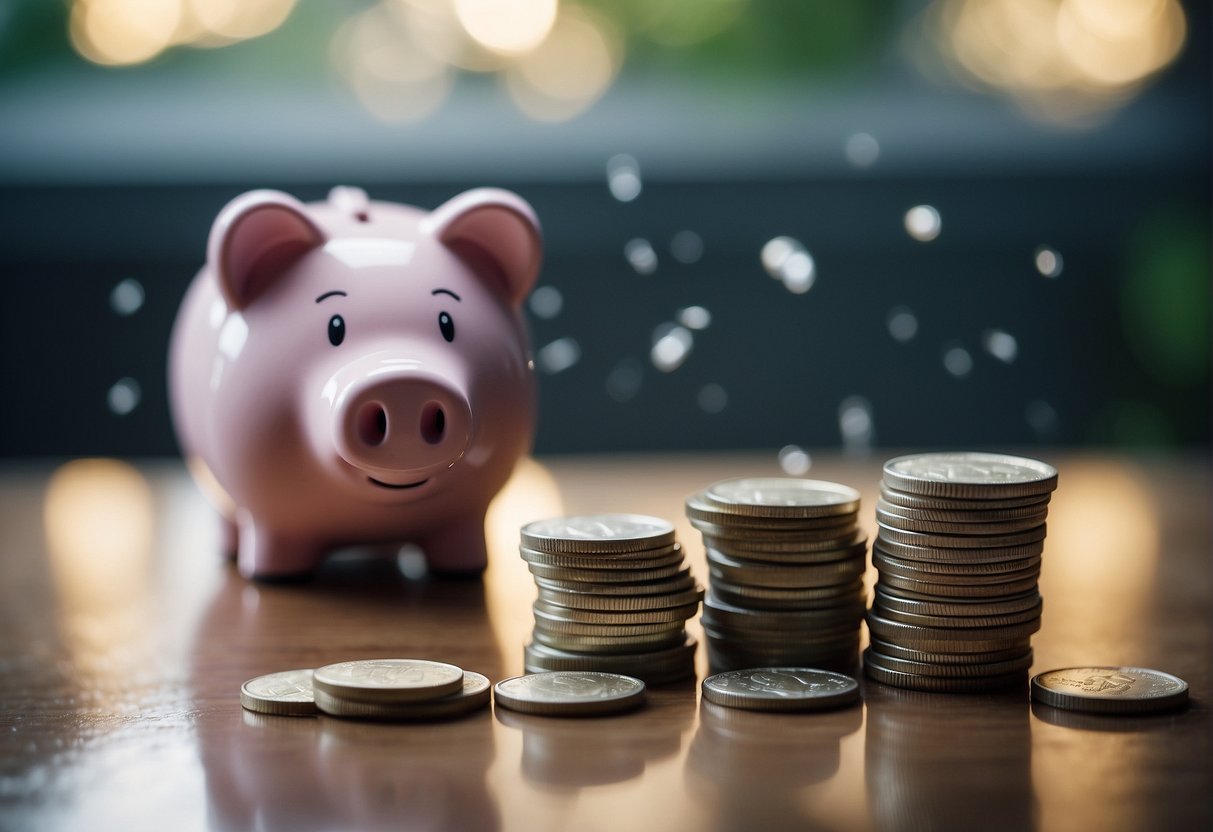
Access to Funds in a Crisis
Liquidity is crucial in emergency funds, allowing individuals to access their money during unforeseen situations. Emergencies, such as unexpected medical expenses or job loss, require immediate access to funds to cover necessary costs and maintain financial stability. Having liquid assets ensures millennials can use their emergency fund in a crisis without relying on credit cards or high-interest loans.
A top priority for an emergency fund is to ensure it’s easily accessible, allowing for withdrawals without delay or penalties. For millennials, this means considering the best options for storing their emergency savings to ensure maximum liquidity.
Choosing Between Savings and Checking Accounts
Two primary options for storing emergency funds are savings accounts and checking accounts. Both offer varying liquidity and interest levels, but choosing the one that best meets individual needs is essential.
Savings accounts generally offer higher interest rates, which helps to grow the emergency fund over time. However, they may have withdrawal limits, and accessing the money might not be as instantaneous as with checking accounts. This makes savings accounts better suited for long-term saving rather than immediate emergency needs.
Checking accounts, on the other hand, provides quicker access to funds and allows for unlimited transactions. This makes them better suited for emergency fund usage in a crisis. However, it’s important to note that checking accounts often have lower interest rates than savings accounts, which might impact the growth of the emergency fund.
Here’s a quick comparison of the two account types:
| Category | Savings Account | Checking Account |
|---|---|---|
| Liquidity | Moderate | High |
| Interest rate | Higher | Lower |
| Withdrawal limits | Yes | No |
In conclusion, the importance of liquidity in emergency funds cannot be overstated. Both savings and checking accounts offer varying degrees of liquidity, and choosing the right option can make a significant difference during a crisis. By carefully considering their needs, millennials can select the best account type to ensure quick access to their emergency funds when needed.
Financial Safety Nets Beyond Emergency Savings
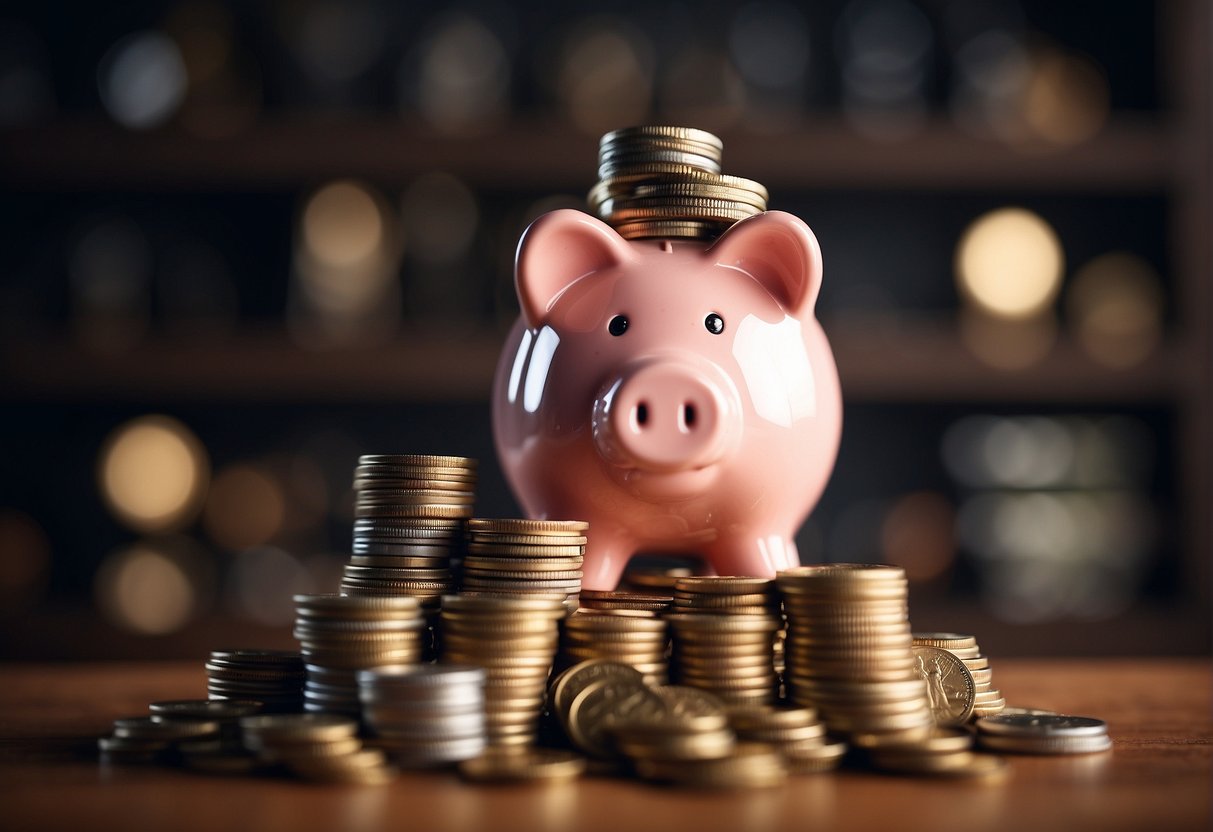
Insurance as a Complementary Protective Measure
An emergency fund is a vital component of a financial safety net, but it’s not the only measure millennials should consider for complete protection. Insurance plays an essential role in safeguarding against various possible financial setbacks. For example, health insurance can help cover medical expenses, while renter’s or homeowner’s insurance can protect against property damage or theft.
Evaluating your specific needs and choosing the appropriate insurance policies to provide comprehensive protection is crucial. For instance, millennials with families might consider life insurance to ensure financial stability for their loved ones in case of an untimely death. By having an adequate insurance plan in place, you can reduce reliance on your emergency savings for unpredictable situations and protect yourself from financial devastation.
The Role of Investments and Retirement Savings
In addition to insurance, investments and retirement savings can contribute to a more robust financial safety net for millennials. While your emergency fund is a cushion for unexpected expenses, long-term financial planning should include investments and retirement savings.
Investments in diverse assets, such as stocks, bonds, or mutual funds, can help grow your wealth over time and provide a financial buffer in case your emergency fund is depleted. To achieve this, diversification is vital, allowing you to minimize risk and take advantage of market fluctuations.
Moreover, consistently contributing to retirement savings accounts, such as a 401(k) or IRA, is crucial to ensure financial security during your later years. These accounts often have tax advantages and can help millennials preserve and grow their wealth for the future.
By incorporating insurance, investments, and retirement savings into your financial planning, you can create a well-rounded safety net to protect against unforeseen financial hardships. As a result, you won’t solely rely on your emergency fund, ensuring long-term financial stability and peace of mind.
The Psychological Benefits of Having an Emergency Fund
Reducing Financial Stress
An emergency fund helps in reducing financial stress by creating a safety net that can be used for unexpected expenses. For millennials, having this safety net provides a sense of financial security. By setting aside funds for emergencies, they can avoid resorting to high-interest debt that could take a long time to pay off.
Here are some scenarios where an emergency fund can prevent financial stress:
- Unexpected medical bills
- Loss of employment
- Incredible car or home repairs
Achieving Peace of Mind
In addition to reducing stress, having an emergency fund can contribute to achieving peace of mind. For millennials, knowing they have a financial buffer to cover unexpected expenses reduces anxiety and enhances mental health. Building an emergency fund fosters a sense of accomplishment and financial stability.
Consider these guidelines for creating an emergency fund:
- Aim to save 3 to 6 months’ worth of essential monthly expenses.
- Start with a small, achievable goal, and increase the amount as your financial situation improves.
- Explore high-yield savings accounts to maximize the potential returns on your savings.
By establishing an emergency fund, millennials can effectively reduce financial stress and achieve peace of mind, securing their mental and financial health throughout life’s unpredictable challenges.
J
ob Security and Emergency Funds

Preparing for Unemployment or Job Loss
In today’s ever-changing job market, job security is not always guaranteed. Millennials may experience unemployment or job loss for various reasons, such as company downsizing, technological advancements, or industry changes. An emergency fund can provide a financial safety net during these uncertain times.
An emergency fund should ideally cover three to six months of living expenses. Here’s a brief list of what to consider when calculating the amount needed:
- Rent or mortgage payments
- Utilities and other bills
- Groceries
- Transportation costs
- Health insurance premiums
- Loan repayments
Creating a budget and tracking expenses can help individuals determine how much to allocate to an emergency fund. Putting aside a portion of each paycheck into a separate savings account can effectively build up this fund over time.
Maintaining Stability During Layoffs or a Pandemic
In recent years, events such as layoffs and pandemics have highlighted the importance of an emergency fund in maintaining stability. For example, the COVID-19 pandemic led to a sudden increase in job loss and unemployment worldwide. An emergency fund can help individuals cover unexpected expenses and avoid debt during these challenging situations.
An emergency fund can also provide peace of mind, knowing that one has the financial resources to face unforeseen emergencies without completely derailing their financial goals. It can also alleviate the stress of searching for a new job, as individuals can focus on finding the right opportunity rather than accepting the first offer due to financial constraints.
In conclusion, an emergency fund is an essential financial tool for millennials, as it provides a safety net during unemployment, job loss, or other unexpected life events. Building and maintaining this fund helps ensure financial stability and security in the face of uncertainty.
Inflation, Interest Rates, and Your Emergency Fund

Understanding the Effect of Inflation on Savings
Inflation is a critical factor that affects the purchasing power of your savings. The increase in the prices of goods and services over time leads to a decrease in the value of money. For millennials, it is essential to understand the importance of accounting for inflation when considering their emergency fund. As inflation rises, the value of your savings decreases, making it harder to maintain the same purchasing power during times of emergency.
For example, if you save $10,000 today with an annual inflation rate of 2%, your purchasing power will drop to $9,800 after a year. In this scenario, over several years, the decline in the value of your emergency fund due to inflation can become significant, and it may no longer be sufficient to cover unexpected expenses.
To counteract the impact of inflation on your emergency fund, it is crucial to consider savings options that provide higher interest rates, also known as Annual Percentage Yield (APY). High-yield savings accounts may help your emergency fund grow faster, keeping up with inflation or even outpacing it.
Finding High-Interest Savings Options
High-Yield Savings Accounts
High-yield savings accounts are popular as they typically offer better interest rates than traditional ones. Central online banks and smaller credit unions tend to have competitive APYs, ensuring your emergency fund keeps up with inflation and retains its purchasing power. Compare different account options to find one that suits your needs best.
Certificates of Deposit (CDs)
Another option millennials may consider for their emergency fund is Certificates of Deposit (CDs), which offer fixed interest rates for a specific period. Although CDs usually have higher interest rates than traditional savings accounts, accessing the money before the end of the term may result in penalties. Thus, CDs can be a good choice if you have a portion of your emergency fund that you won’t need in the short term.
Inflation-Protected Securities
Investing in inflation-protected securities, such as Treasury Inflation-Protected Securities (TIPS) is an additional approach to combating inflation while saving for emergencies. These government-issued bonds are designed to keep up with inflation, adjusting their principal value in response to changes in the Consumer Price Index. As a result, the interest you earn also adjusts, safeguarding against inflation.
In conclusion, understanding the effect of inflation on an emergency fund is crucial for millennials, as it directly influences the future purchasing power of their savings. By exploring high-interest savings options, you can protect and even grow your emergency fund, ensuring you are prepared for financial emergencies.
Maximizing Your Emergency Fund
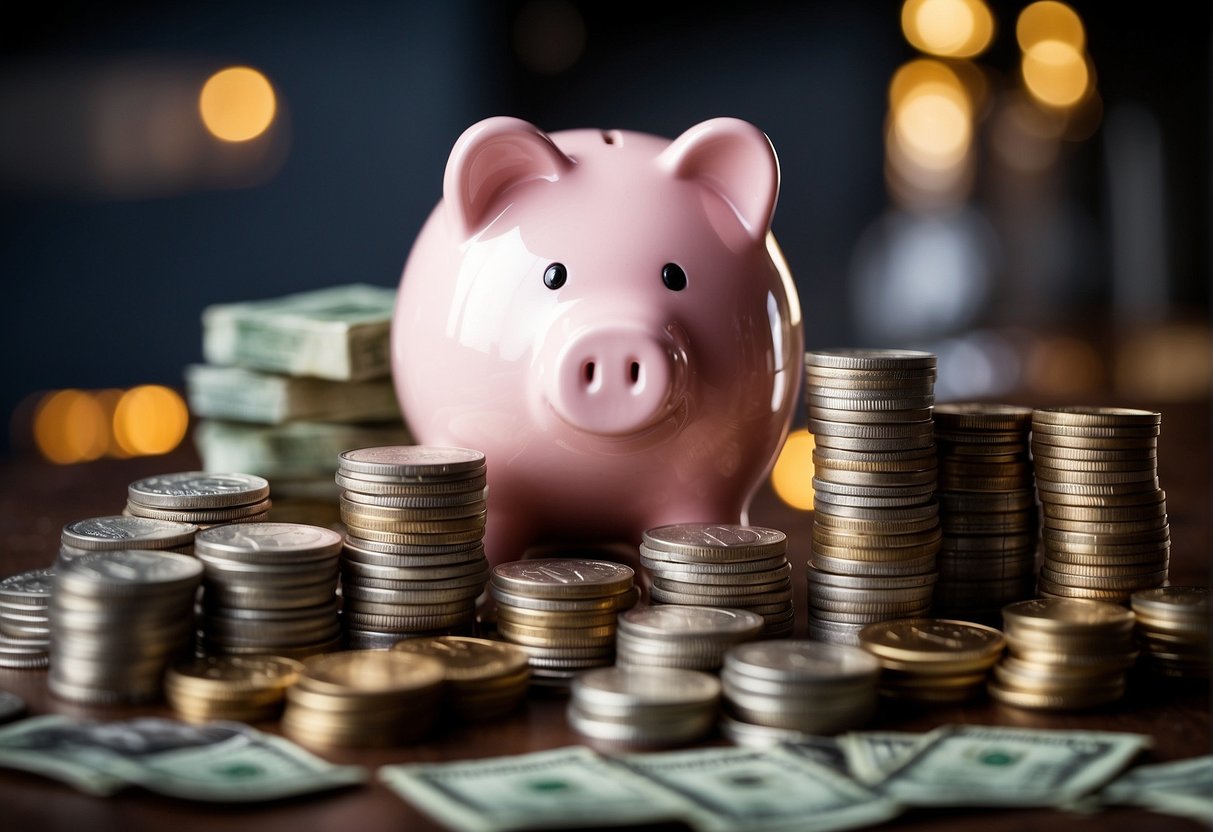
Using Windfalls and Tax Refunds Effectively
One of the strategies to boost your emergency fund is taking advantage of windfalls and tax refunds you receive. Instead of spending these on unnecessary items, allocate a significant portion or even the entire amount to your emergency fund. For instance, if you receive a bonus at work, use it to strengthen your financial safety net.
It’s also helpful to have a solid savings plan in place. Set your financial goals, contribute a specific percentage of your monthly income, and consider alternative means of income, such as a side hustle. A well-thought-out savings plan will maintain the momentum to grow your emergency fund effectively.
Lifestyle Choices That Contribute to Savings
Reassessing your spending habits and making sensible lifestyle choices can significantly boost your emergency fund. Here are some ideas to consider:
- Cut back on non-essential expenses: For example, evaluate gym memberships and subscription services you may not use frequently.
- Limit luxury vacations: Opt for more budget-friendly travel options or explore local attractions.
- Create and follow a budget: Track your monthly income and expenses to identify areas where you can save more.
- Use cash and avoid credit: Discipline yourself to live within your means so you don’t have to dip into your emergency fund to settle debts.
- Seek additional income sources: A side hustle or freelance gig will provide extra income for your emergency fund.
Millennials can create and maintain an emergency fund by diligently managing their finances and making conscientious decisions that promote savings. This financial security will help navigate unexpected expenses and challenges, mitigating the risk of debt and ensuring a more stable future.
Avoiding Common Pitfalls When Using Emergency Funds

Overspending from Emergency Accounts
One common pitfall when utilizing emergency funds is overspending. Using the fund strictly for unforeseen financial emergencies, such as unexpected medical expenses or significant home repairs, is essential. To avoid this pitfall:
- Create a clear definition of what constitutes an emergency
- Regularly monitor the fund’s balance and transactions to ensure funds are not spent frivolously
- Keep the emergency fund separate from daily spending accounts to minimize the temptation to access it
When to Withdraw and When to Save
Knowing when to withdraw and when to save can be challenging with emergency funds. To strike the right balance and ensure the fund’s availability when needed, consider the following:
- Evaluate the expense: Determine if the expense is a true emergency, such as:
- Unforeseen medical costs
- Loss of income due to job loss
- Major car repairs
- Home-appliance repair or replacement
If the expense is not a genuine emergency, explore other financing options or adjust your budget to cover the cost.
- Review your financial goals: Regularly revisit your savings goals, which might include saving 3 to 6 months’ worth of essential monthly expenses, to ensure you’re on track. Adjust your contributions to the emergency fund if you frequently withdraw from it for non-emergencies.
- Replenishing the fund: In the unfortunate event of an emergency, ensure you fill your emergency fund as soon as possible. This will ensure you have a safety net for subsequent emergencies.
By understanding the potential pitfalls, millennials can better manage their emergency funds and protect themselves from financial stress in unforeseen situations. Remember to use the emergency fund wisely, save diligently, and replenish the balance when necessary.
Adapting Your Emergency Fund Over Time
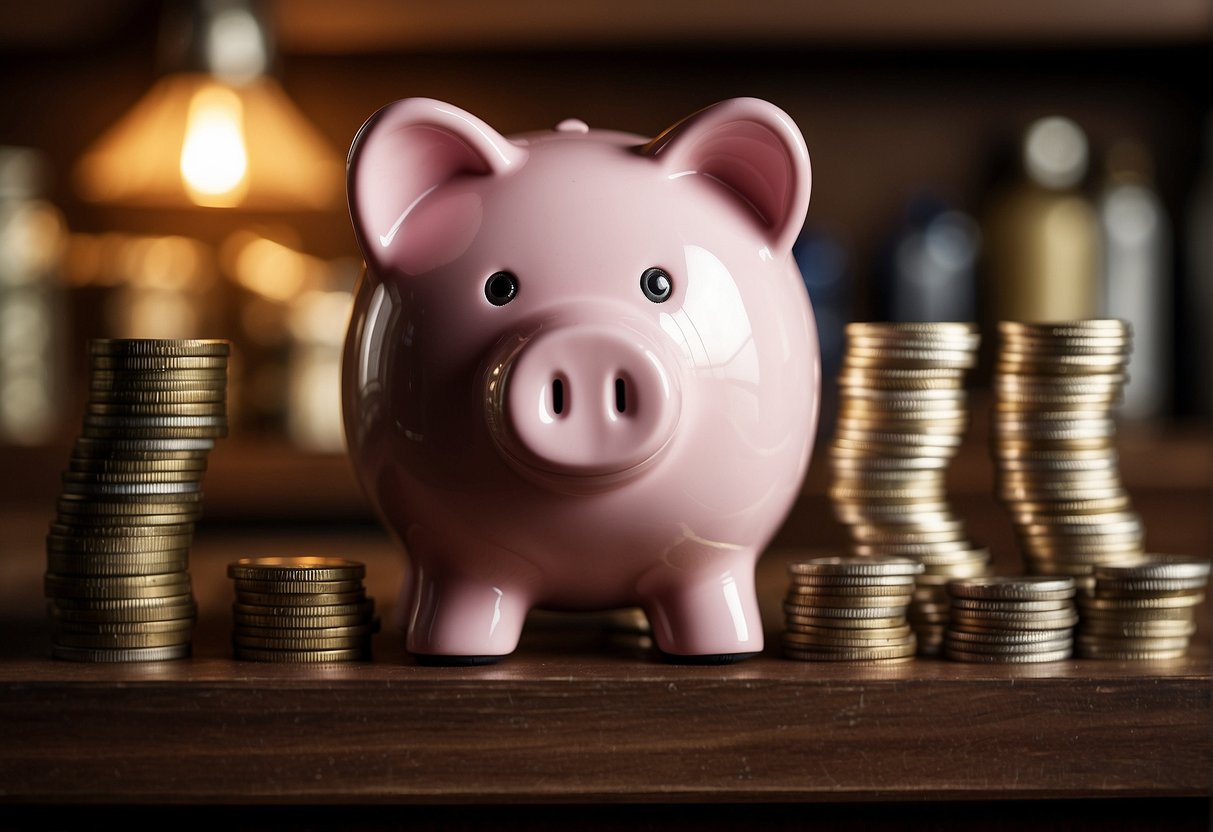
Adjusting Goals with Changing Life Circumstances
Millennials must understand that their financial situation will evolve and adapt their emergency fund goals accordingly. As life circumstances change, such as getting married, having children, or buying a home, the amount needed for an emergency fund may increase or decrease. Adjusting your goal in response to changing life situations ensures that your emergency fund provides adequate support regardless of your current circumstances.
Here are some factors to consider when adjusting your emergency fund goals:
- Income changes: If your income increases or decreases, you may need to adjust your emergency fund target.
- Debt payments: Paying off high-interest debt may allow you to divert more funds to your emergency savings.
- Long-term financial goals: As you work towards your long-term goals, like retirement or a home purchase, you might need to reassess your emergency fund about those objectives.
Reviewing and Replenishing Your Fund Regularly
Regularly reviewing and replenishing your emergency fund is crucial to maintain its effectiveness. This lets you respond promptly to unexpected expenses such as medical bills, job loss, or home repairs. To ensure that your emergency fund remains adequate, consider the following practices:
- Schedule regular reviews: Set a specific timetable, such as quarterly or semi-annually, to evaluate your emergency fund.
- Monitor your expenses: Keep track of fixed and variable expenses to identify areas where you may need to increase or decrease your emergency fund.
- Replenish as needed: If you dip into your emergency fund, prioritize replenishing it as soon as possible to avoid being unprepared for future emergencies.
Following these guidelines will help millennials stay on top of their emergency fund goals and maintain their financial well-being.
Frequently Asked Questions
How does an emergency fund contribute to financial stability?
An emergency fund provides a safety net for unforeseen expenses or situations, such as medical costs, home repairs, or sudden income loss. By having a designated reserve, individuals can avoid accumulating debt when faced with unexpected situations, thus contributing to financial stability.
What is a recommended target amount for an emergency savings fund?
While the optimal amount for an emergency fund can vary based on individual circumstances, a general recommendation is to have three to six months’ worth of living expenses saved up. This can ensure adequate financial coverage in case of unexpected life events.
How can establishing an emergency fund impact one’s spending habits?
Building an emergency fund can encourage individuals to be more disciplined in spending habits, as they’ll need to prioritize saving for emergencies versus non-essential purchases. Creating and maintaining a budget is a helpful way to manage money and reach the emergency fund goal while promoting responsible spending habits.
In what ways can an emergency fund protect against unexpected expenses?
An emergency fund serves as a financial buffer, allowing individuals to cover costs that were not anticipated without using credit cards or personal loans. This protection against unexpected expenses reduces the risk of falling into debt and lowers the financial stress that may arise during tough times.
What are the long-term benefits of maintaining a healthy emergency reserve?
A healthy emergency reserve ensures that individuals have a financial cushion in unforeseen events. Additionally, being well-prepared for emergencies can improve one’s overall financial well-being and reduce the anxiety caused by potential economic instability. Furthermore, as the emergency fund grows, individuals may use it as a starting point for longer-term financial goals and investments.
How often should one review and adjust their emergency fund allocation?
It’s essential to review and adjust the emergency fund allocation regularly. This can be done annually or whenever significant life changes occur, such as changes to income or expenses or the addition of a family member. Regular assessment of the emergency fund ensures that it remains adequate and aligns with an individual’s current financial situation.
Conclusion
In today’s fast-paced and unpredictable world, having an emergency fund is a crucial aspect of financial planning for millennials. It is a safety net to cover unforeseen expenses, such as unexpected medical bills, major car repairs, or job loss. This financial buffer reduces stress and ensures stability during tough times.
According to financial experts, saving three to six months’ worth of living expenses in an emergency fund is recommended. Depending on their specific financial situations, this amount may vary for individuals, but it should ultimately be enough to provide a sense of security.
To build an emergency fund, millennials can start with small, consistent contributions and gradually increase the amount saved over time. For instance, one approach is to save [10, 20, 30, 40] dollars per week during different quarters of the year, totaling $1,300 in one year, as suggested by My Millennial Guide. This starter fund can later be grown to a fully-funded emergency reserve for added protection.
In summary, establishing and maintaining an emergency fund is a wise financial decision for millennials. It safeguards against unexpected expenses and allows them to continue working towards their goals without significant setbacks. With careful planning, consistent saving, and a clear understanding of the importance of an emergency fund, millennials will be better equipped to face the financial challenges that life presents.




